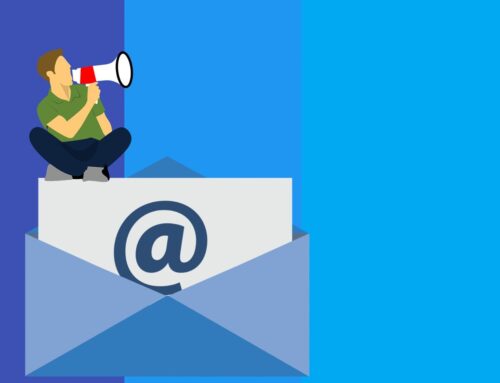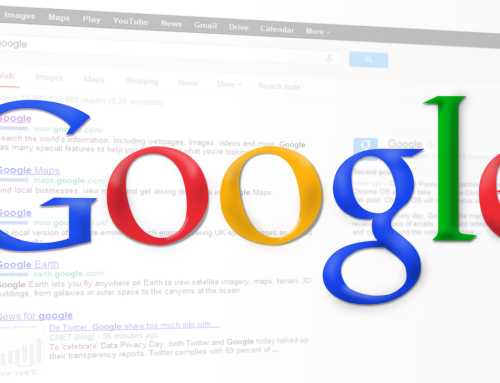Unified ID 2.0
We’re completely familiar with promotions pursuing us around the web. Is it somewhat dreadful? It tends to be, however numerous individuals discount it as a piece of utilizing the web.
Notwithstanding, the world is evolving. With a more prominent accentuation on security, the manner in which customized advertisements pursue you around the web could be, as well. The hotshot in this Google, declaring in 2020 that by 2022, it would end the utilization of outsider treats (what sponsors use to follow you) on its program, Chrome.
Promotions are a basic piece of how the web functions, so the mission to track down another approach to give clients customized advertisements started and Unified ID 2.0 has set up itself as a leader.
What Is Unified ID 2.0?
Brought together ID 2.0 is a proposed substitution for treat following on the web. It plans to add an additional layer to customer protection while working with customized promotions across the web.
Basically, we’re discussing how organizations track your information, and as you can envision, this is a confounded issue.
To comprehend Unified ID 2.0, it’s ideal to recount the story all along, and take a gander at how the idea became.
What Are Cookies?
At the point when you visit a site, it introduces a little piece of code called a treat in your internet browser. This permits the site to remember you the following time you visit, assisting it with customizing your experience by, for instance, naturally logging you into your record.
It is known as a first-party treat, and it appears to be a helpful apparatus, correct?
There are certainly advantages to treats, yet there are additionally components individuals are less excited about.
At the point when you visit a site, you’re additionally likely gathering outsider treats in your program. As the name proposes, these are from an outsider organization, ordinarily a promoter. These treats can follow you across the web, finding out about your propensities, and permitting the promoter to target you with more important advertisements.
Once more, there are a few advantages to this, but on the other hand it’s raising protection concerns.
Inquiries Concerning Privacy
Treats are the same old thing; they’ve been a typical component on the web since 1994. Nonetheless, the world has changed an extraordinary arrangement around there (particularly the manner in which we interface with the web), and security has become a significant concern.
The manner in which we connect with the web has developed so rapidly that guideline has battled to keep up. Governments are attempting to execute limitations to protect individuals on the web, and the equivalent goes for the huge tech organizations.
Immense organizations like Google, Microsoft, and Facebook presently hold enormous control over the manner in which we draw in with data, however with that comes a ton of duty. Buyers are getting more mindful of issues like security, and they’re anticipating that these businesses should make changes.
What Reason Did We Need Cookies In The First Place?
Sites plan to offer worth to their clients. In the prior days of the web, however, they had no chance to get of checking what that crowd resembled and how they cooperated with the website.
This data is indispensable to give clients top caliber, significant data, so they began gathering that information. It likewise permitted promoters to comprehend who webpage guests are and what else they do on the web.
The outsider treats on your program permit publicists to illustrate your buyer propensities and target you with more important promotions. This is the reason when you peruse the web, the promotions you see will in general be very exact to your needs and needs.
For instance, you search for an accessory for your adored one once, and the picture underneath shows you what pursues you around the web for the coming many months.
How Advertisements Chase After You
On the more vile side, this permits outsiders to follow your perusing, which normally impacts your protection. Notwithstanding, it likewise permits distributers to adapt their sites to subsidize the excellent substance you appreciate burning-through.
Plainly, an equilibrium should be found, and Unified ID 2.0 is one proposed arrangement.
Security and treats have been discussed for quite a while. Notwithstanding, maybe content with the state of affairs, distributers and sponsors weren’t really prepared for huge changes.
That was until Google’s large declaration in 2020 that in 2022 it would begin to stop organizations following clients across the web through its program Chrome.
At the point when an organization as large as Google talks, individuals tune in, and this promptly stood out for sponsors and publishers. Chrome has cornered 69.28 percent of the web program piece of the pie, so this implied treats would be changing for a colossal number of clients around the world.
With vulnerability around what might supplant treats, and how publicizing would chip away at the stage going ahead, various recommendations have been sent, and Unified ID 2.0 is one of the pioneers.
Keeping the Internet Free
The progressions in Google’s strategy should offer more noteworthy degrees of security for customers, so where’s the trick?
One issue with these progressions is that we see the web as a free asset. We have moment, free admittance to any data we might need. Nonetheless, it costs distributers cash to make those assets.
Numerous distributers depend on advertisement incomes to support the high-esteem data they give shoppers to free. On the off chance that advertisement yields drop fundamentally as we move away from treats, locales may need to change their business structure, possibly restricting the measure of free data on the web (Some destinations, similar to this one, utilize an alternate model and will not be affected. I don’t depend on advertisements to drive income, however numerous distributers do).
This implies what follows treats is a significant choice that influences numerous individuals. Driven by some large names in the promoting business, Unified ID 2.0 is one suggestion that may find some kind of harmony between security while safeguarding the worth trade.
The Difference Between Unified ID 2.0 and Cookies?
Treats are valuable however unmistakably deficient with regards to with regards to protection, so how does Unified ID 2.0 change this?
Bound together ID 2.0 is viewed as the following movement in treats. It gathers the data promoters need, however it puts the client at the core of the dynamic cycle. Maybe than utilizing outsider treats to follow a client, sites utilize the client’s anonymized email address to distinguish when they sign in.
It may seem like treats altogether yet name, however it expects to improve them in three significant manners:
Anonymization: With Unified ID 2.0, your character is anonymized utilizing a one of a kind identifier that can’t be followed back to your email or any type of ID. Your information isn’t followed back to you explicitly; it’s followed back to your anonymized identifier.
Authority over security: New enactment has given clients somewhat more power over their protection lately. At the point when you peruse the web, you notice much more sites requesting that you for assent track treats. Continually dealing with your inclinations for each site you visit is a problem, however. Bound together ID 2.0 permits you to control your choices from one single login.
Straightforwardness: One angle that the makers of Unified ID 2.0 accentuate is clarifying the benefit of following. The new stage plans to give buyers more data and show the connection among following and the substance they devour on the free web. Dislike with treats where we’re simply expected to acknowledge it; you’re given the data to settle on an educated choice.
Though treats were practically general, the accomplishment of Unified ID 2.0 depends on publicists, distributers, and customers all jumping aboard.
Why Is Unified ID 2.0 Replacing Cookies?
One of the issues with treats is they can follow clients without their assent. Protection has become a major issue lately, and governments are observing.
In 2018, the European Union presented the General Data Protection Regulation, which frameworks rules for how information could be gathered. This had repercussions for promoters and distributers everywhere on the world.
This sort of intercession will undoubtedly catch Google’s eye, and by changing the manner in which Chrome utilizes treats, it’s reacting to public and legislative worries about security.
It boils down to a straightforward inquiry: what is your opinion about organizations following everything you might do around the web?
For a great many people, it causes them to feel awkward (Mozilla, which has effectively impeded outsider treats on its program blocks more than 10 billion trackers per day), regardless of whether it may bring about a superior encounter.
Bound together ID 2.0 could permit individuals to assume responsibility for the actual equilibrium. Utilizing a bound together email login, they can handle their inclinations, fitting their settings to how they need to draw in with the web.
Maybe than having treats constrained upon them, or setting their inclinations for each site they visit, Unified ID 2.0 will permit customers to set their security inclinations through a concentrated login.
No one loves seeing promotions. Consolidating publicizing into your substance is a craftsmanship, and there are a lot of sites that neglect to do this, decreasing the client experience and delivering them practically garbled.
If you would like to speak to an expert on Unified ID 2.0 don’t hesitate to get in touch with Mobloggy. Their friendly and professional team will be more than happy to help.






